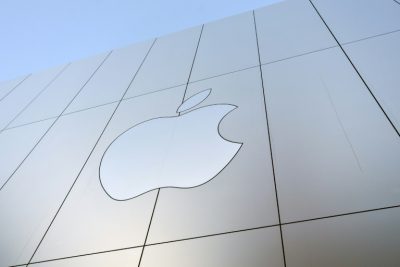Apple – the culture-changing company behind the iPod, iPhone, and iPad – hit another milestone on Thursday, becoming the first private-sector company to surpass $1 trillion in market value.
Shares of Apple finished the formal Wall Street trading day at $207.39, topping the magic number two days after the California tech giant reported strong quarterly earnings.
The landmark is the latest victory for Tim Cook, who faced skepticism when he took over as chief executive in 2011 from ailing iconic co-founder Steve Jobs.
Jobs, who founded Apple in a Silicon Valley garage in 1976 with Steve Wozniak and built it into a global powerhouse, died in October 2011.
After his death, analysts and other industry watchers wondered whether the company would lose its ability to create buzz for “the next big thing.”
But Cook has gradually won accolades from investors by pumping out a series of solid financial results and spreading Apple’s products to China and other foreign markets.
Apple is the first private sector company to reach this level. State oil company PetroChina briefly broke the $1 trillion barrier in 2007 during its initial public offering, but has since dropped back down.
“Of course I’m proud of Apple, but I don’t measure the world by human simplifications like round numbers,” co-founder Wozniak was quoted as telling Yahoo Finance.
US tech companies have cemented their position in the broader market, now making up the top five most valuable enterprises based on share prices.
Behind Apple are Amazon, Google parent Alphabet, Microsoft and Facebook.
A trillion dollars is roughly the annual gross domestic product of Indonesia, and more than twice that of Belgium, according to World Bank data from 2016.
As with other landmarks — such as the Dow crossing 25,000 points for the first time — the Apple record is significant because of its resonance beyond the financial universe.
“The $1 trillion mark is more psychological, and sends a message of growth and size into the market,” said Howard Silverblatt, senior index analyst at S&P Dow Jones Indices.
But many financial insiders view the record as a non-event.
“There’s no real excitement on the trading desk,” said Karl Haeling of LBBW. “It’s one of those things that does not mean anything by itself… it’s more a testimony of the importance of Apple on the market.”
– Focus on digital content –
Apple has sold more than a billion iPhones since the first model was unveiled by Jobs in 2007.
The company is in the unique situation of controlling the hardware and software in its mobile devices, with content for users required to go through its App Store that takes a percentage of revenue.
It has moved to keep up with trends in artificial intelligence and voice-commanded smart speakers.
Virtual assistant Siri is built into Apple devices, and the company boasts the most popular smartwatch on the market
Cook has consistently touted innovations in the pipeline at the famously secretive company.
Last month, an ex-Apple engineer was charged in California with stealing trade secrets from a hush-hush self-driving car technology project days before he quit to go to a Chinese start-up.
– ‘Making technology simple’ –
Apple has been credited with giving rise to lifestyles centered around mobile apps for seemingly everything from games and messaging to ordering food or summoning car rides.
“At the core, I think Apple’s biggest revolution has been putting consumer experience first and making technology simple,” said Creative Strategies analyst Carolina Milanesi.
But the phenomenal success of the iPhone led competitors to mirror certain features like touch-screens featuring rows of colorful icons — and prompted Apple to pursue those competitors in court.
Apple has fought myriad patent battles with rivals, particularly South Korean consumer electronics colossus Samsung, arguing that its product design is as much its intellectual property as the hardware and software.
In a US regulatory filing this week, Cook warned tariffs being imposed in a US-China trade war could result in Apple paying more to make its products, eating into profit or forcing up prices for consumers.
“Our view on tariffs is they show up as a tax on the consumer and wind up resulting in lower economic growth; and sometimes can bring about significant risk of unintended consequence,” Cook said during an earnings call.

Independent technology analyst Rob Enderle said Apple’s trillion-dollar valuation defied financial trends in recent quarters and potential defeat in a legal battle with Qualcomm over mobile chips.
“My view is they are on a bubble, and it is a big bubble,” Enderle said.
“I am expecting to see a correction. Basically, it is still the iPhone company.”
China-based Huawei took the second-place spot from Apple in a tightening global smartphone market during the second quarter of this year, according to the International Data Corporation.
South Korean consumer electronics titan Samsung remained the top smartphone maker.
AFP















